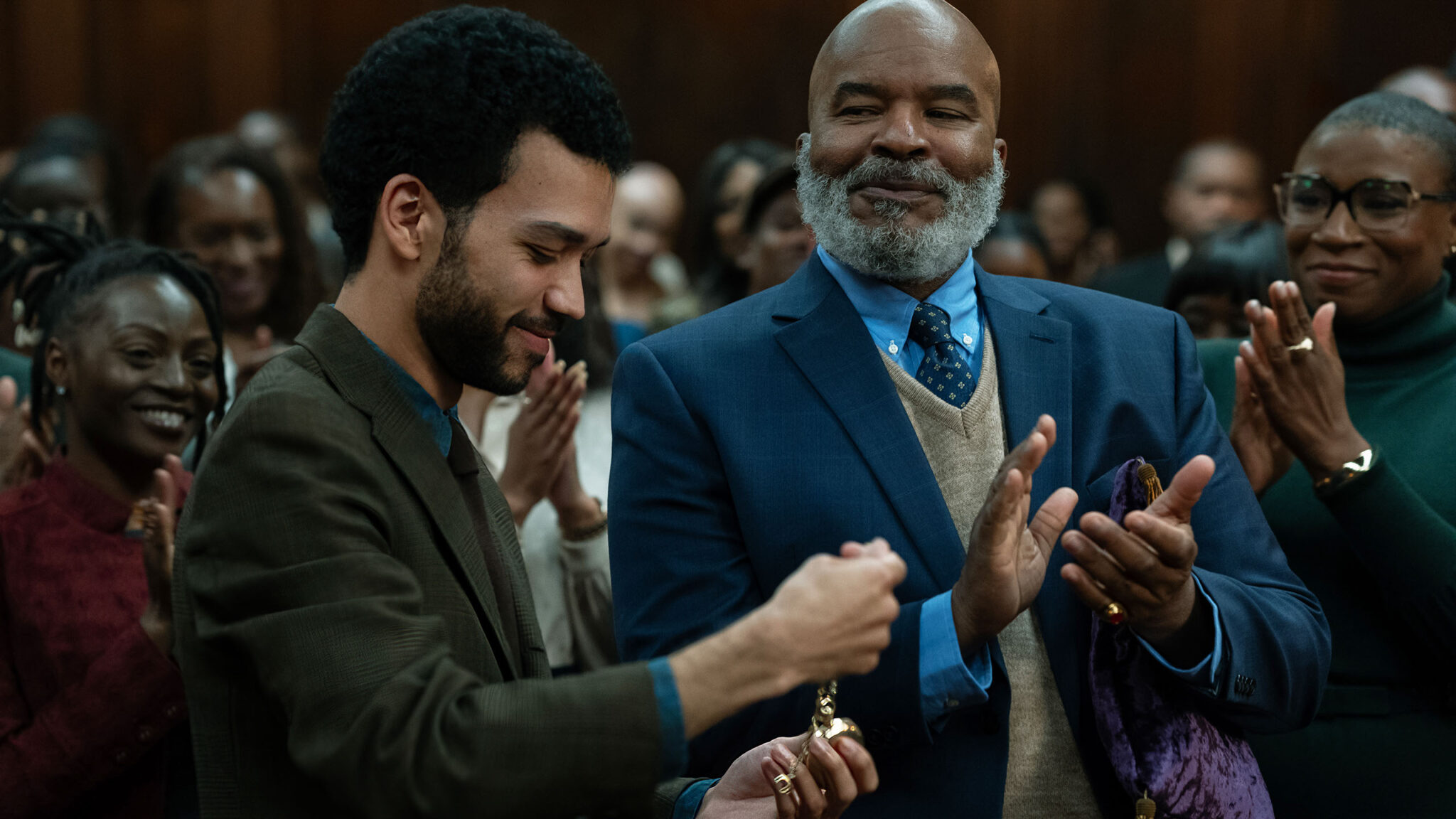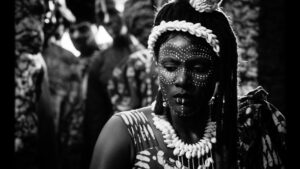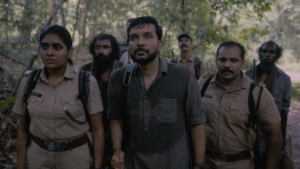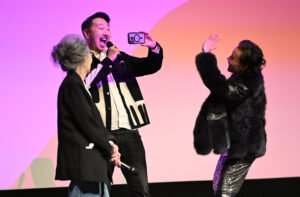By Bailey Pennick
One of the most exciting things about the Sundance Film Festival is having a front-row seat for the bright future of independent filmmaking. While we can learn a lot about the filmmakers from the 2024 Sundance Film Festival through the art that these storytellers share with us, there’s always more we can learn about them as people. This year, we decided to get to the bottom of those artistic wells with our ongoing series: Give Me the Backstory!
When asked who he first told that his film got into the 2024 Festival, Kobi Libii won’t limit his response to just one person. “My wife, then Justice,” he says. It’s fitting that the writer-director of The American Society of Magical Negroes reached out to Justice Smith, the film’s star, second. Libii’s creative relationship with the rising actor runs deep thanks to Libii’s time at the Sundance Labs.
“I was lucky enough to go through the Writers Lab and Directors Lab with this film in 2019,” Libii says of his Institute connection to his feature-length debut. “Both were invaluable, but particularly the Directors Lab — it’s a true workshop. I got to shoot, cut and screen quick-and-dirty versions of a few scenes in the film, purely for my own learning. It’s hard to overstate how beneficial that was. There’s stuff I only had the guts to try in the real film because I had done proof-of-concept versions at the lab.”
And we’re so thankful Libii had those guts because The American Society of Magical Negroes is a film ready to ask some serious questions through a fantastical premise. Imagine a version of our present day world that features a secret society of Black people with special powers bestowed on them for the sole purpose of keeping white people happy. This is where we meet Aren (Smith), a textile artist who’s looking for his place in the world while he understands how society really works.
The American Society of Magical Negroes debuted at the 2024 Sundance Film Festival in the premieres section and you could feel the strong connection between filmmaker and actor on stage. This brings us back to the power of the 2019 Directors Lab: “[It’s also] where I met Justice Smith, who’s the lead in the film, and a very special collaborator. So, on a personal level, it’s incredibly satisfying to premiere at Sundance. It’s been such an integral part of the development of the film that it feels a bit like coming home.”
Below read about why Libii thinks The American Society of Magical Negroes needs to be told now, what he would be doing if he wasn’t a filmmaker, and the one item in his fridge that is just for him.
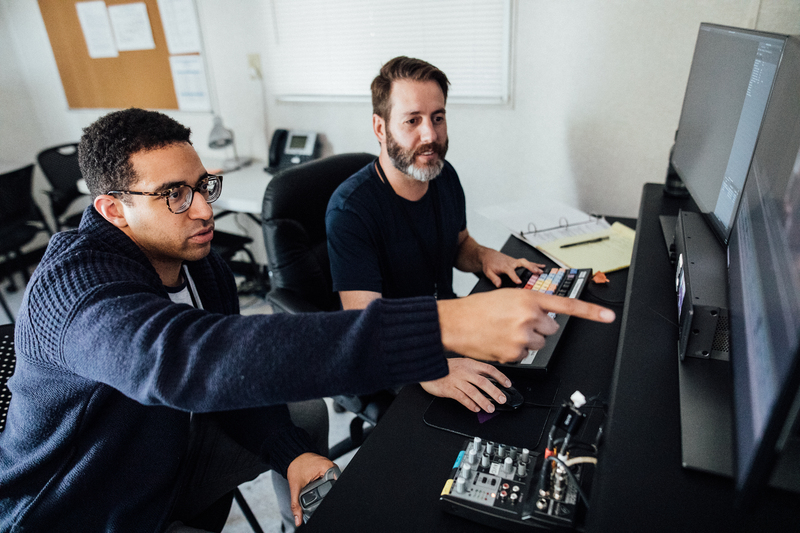
Tell us why and how you got into filmmaking.
I had a story in my head that I wanted to see and I wished that someone would make it. At the time, I didn’t think of myself as a director, but there was nobody else who could make it because it was in my head, so I just got a bunch of actor friends together and made it. That’s how I directed my first short.
Why is filmmaking important to you? Why is it important to the world?
One of my favorite feelings, as an audience member, is when I go to the movies after a shitty week and come out revitalized. I go in ragged, a little sleepy maybe, but afterwards I’m energized: new thoughts, feelings, just kind of bursting. To me, that’s our job as filmmakers: to fuel people up to keep living.
What was the biggest inspiration behind this film?
My film is downstream of Magical Negro films, obviously. Especially the Oscar-bait-y ones I grew up with in the ’90s and early 2000s. But would I call them an “inspiration”? I always say my film is less about Magical Negro movies than it is about what it’s like to grow up as a Black person in the culture that produces them.
Describe who you want The American Society of Magical Negroes to reach.
In many ways, my film is a story about who gets to be the main character. Not just in movies, but in American life more broadly. Whose comfort and safety are prioritized and whose aren’t? Whose lives are assumed to matter and whose require marches and movements to protect?
All of this is to say that, while the film is universal, I think anyone who’s felt othered or pushed to the background can find a special connection to it.
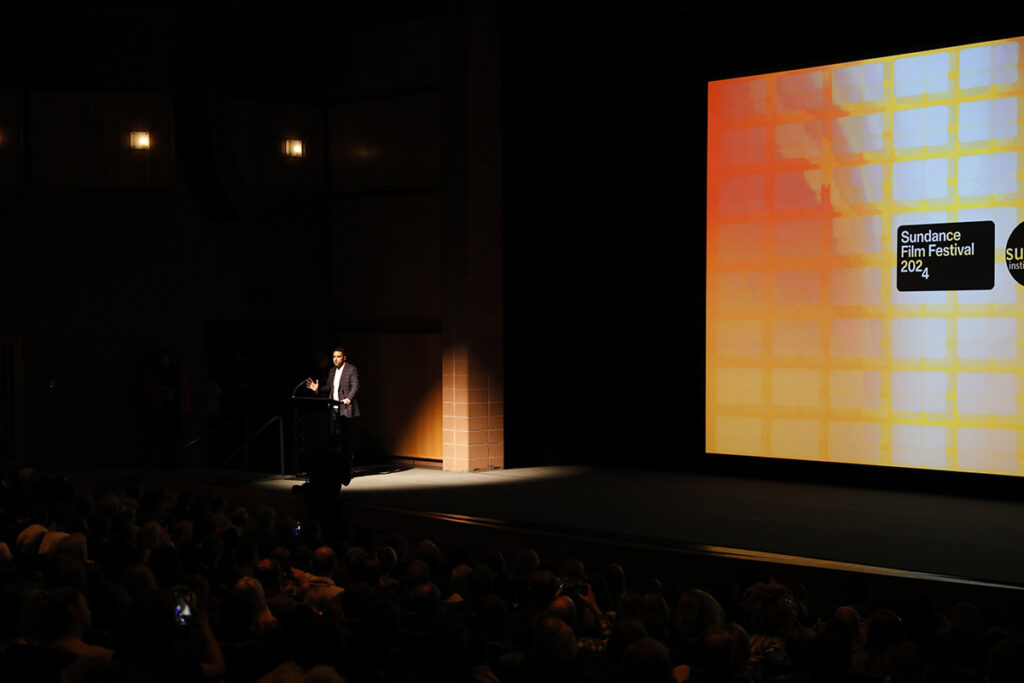
Why does this story need to be told now?
I think we’re pretty decent, as a culture, at telling stories about historical racism (slavery, segregation, etc.) We’re not as good at telling stories about more contemporary racism, especially the subtle, often unconscious ways white supremacy seeps into our brains and poisons us all. But those stories are urgent and relevant as well. This is one of them.
If you weren’t a filmmaker, what would you be doing?
Teaching, probably.
What’s your favorite film that has come from the Sundance Institute or Festival?
Would be easier to make a top 100 than pick one. But let’s go with, You Can Count On Me. I love that movie so much.
Early bird or night owl?
Early bird.
What was the last book you read?
How to Hide an Empire: A History of the Greater United States by Daniel Immerwahr.
What three things do you always have in your refrigerator?
Whole milk (for toddler), string cheese (for toddler), sparkling water (for me, all for me).




